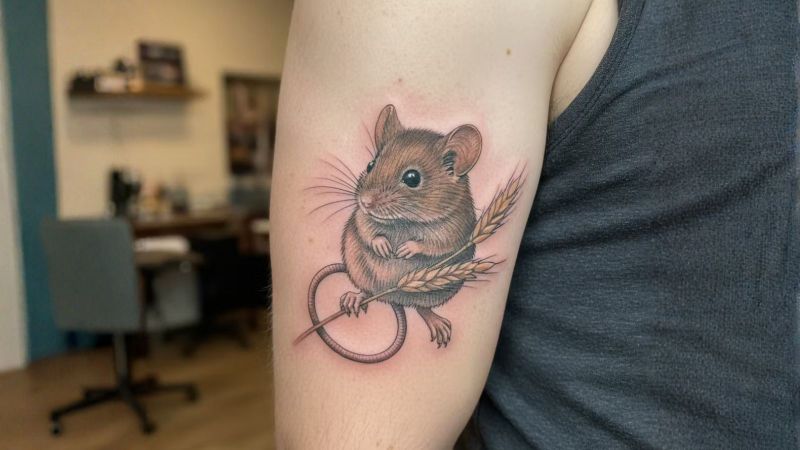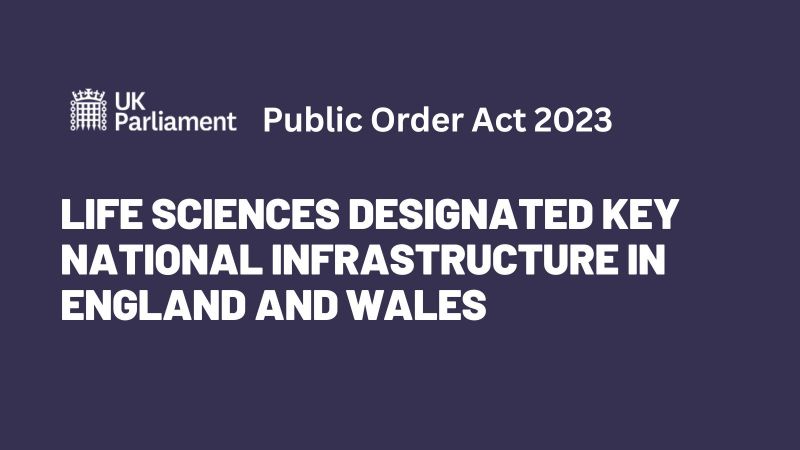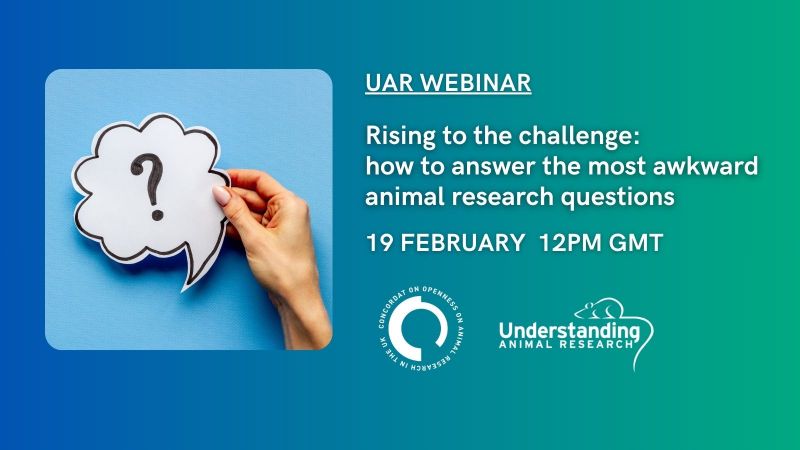What we do
We aim to achieve a broad public understanding of the humane use of animals in medical, veterinary, scientific and environmental research by engaging with and informing members of the public, the media, policy makers, schools and the scientific research community.
Providing information on animal research
UAR provides thoroughly researched and evidence-based information on how and why animals are used in scientific research in the UK. This includes:
- How animal research is regulated and when animal testing is required by law
- Information on animal experiments and how they are carried out safely
- Statistics on animal research including annual breakdowns of the statistics released by the UK and NI Home Office
- photos, videos and infographics on animal research and related subjects, downloadable for free from our resource libraries
- Educational materials for teachers and schools in our Teacherzone including free school visits
Science writing and articles
UAR regularly publishes articles on animal research and related subjects. We look at how animals have been used in recent research studies, their place within the development of new drugs and treatments, and the history of their use for different diseases or areas of research, such as treatments for cancer. We also publish commentary on best practice in animal research, animal rights extremism, and common misconceptions and misinformation around animal research.
Some of our most popular articles include: Is animal research ethical?, Sixty years on: the history of the thalidomide tragedy, and How sickle cell protects against Malaria.
Read UAR Articles
Animal facility laboratory tours
We have worked with UAR member organisations to create a variety of 360º Virtual Laboratory Tours, which are available for free online. In the tours, you can navigate through an animal research facility virtually, stopping at key locations in the lab to learn about the work that goes on there. For example, the University of Oxford Tour guides the user through a state-of-the-art monkey facility and includes images and videos of staff preparing food, explaining monkey nutrition in the lab, moving the animals from room to room, conducting experimental procedures and much more.
The LabAnimalTour website features virtual tours from the MRC Harwell Institute, The Pirbright Institute, University of Bristol, University of Oxford, and University of Manchester.
If you would like to discuss content available on the UAR website or are interested in collaborating with us please contact office@uar.org.uk
Social media
You can find UAR on LinkedIn, Facebook, Instagram, X, BlueSky, and YouTube.
On our social media channels, you will find a wealth of information about animal research in the UK and beyond. We share infographics and videos created specifically for our social media audiences, as well as sharing regular research news from across the world, so that they can understand how and why animals are used in scientific research.
This includes describing why different animal species are used in research, explaining how animals help in medical discoveries and pharmaceutical development, highlighting new research involving animals, explaining the role of animal technicians, discussing animal welfare and the 3Rs, and more.
We also use social media to support and share content from our Concordat signatories. This includes sharing photographs of real lab animals from signatories’ animal facilities and highlighting their openness activities.
Educational materials
We provide materials for teachers and students including essay writing resources, worksheets, and information on how animal research fits into the UK school curriculum.
Free school talks
As part of our schools programme, we offer free talks to secondary schools in the UK as part of the Animal Research Conversation. Our talks are recommended for Key Stage 3 and are delivered by a member of the UAR education team or by one of our Ambassadors from a UAR member organisation. All UAR Ambassadors receive training and teaching resources to use in the classroom.
Science fairs and conferences
We don’t just talk to young people in classrooms, but also meet them, their teachers and parents at science fairs where we discuss the importance of well regulated animal research while engaging in activities such as taking (fake) blood samples from the tails of model rats. We can support any members who are planning to run similar exhibits in public and offer pre-event training in how to talk about the animal side of things should it come up.
Workshops and training
We provide in-person and online workshops on public engagement around animal research, free for all UAR members. These sessions support individuals within the sector to feel more comfortable discussing their role and explaining its value and challenges in formal or informal situations, including developing strategies for dealing with unfriendly confrontation.
We contribute to developing a stronger culture of care in our member organisations through presentations and interactive sessions that help animal care workers and researchers to think about the costs to them in working with research animals, the real value of their work, and strategies for off-setting feelings of stress and anxiety.
You can arrange for a workshop or get in touch to discuss your specific needs at office@uar.org.uk
Media and Policy
Supporting journalists
We support journalists to tell stories about animal research. If you are a journalist or producer and need help please contact cmagee@uar.org.uk and he can help you find interviewees and institutions to visit.
Policy
We also support the bioscience community in their communication with the government about the policy and law that regulates this sector. If you need help please contact cmagee@uar.org.uk.
The Concordat on Openness on Animal Research
We work with our members and the scientific community to help them be open about their involvement with animal research through the Concordat on Openness on Animal Research in the UK. The Concordat is a publicly accountable pledge where signatories commit to being clear about how, when, and why they use animals in research, to engage with the media and the public, and to report annually on their progress. The Concordat was launched in May 2014 and has been signed by more than 130 UK-based organisations.
To support our stakeholders with their animal research communications, we provide specialist advice through publishing case studies and annual reports, delivering training and presentations, recognising good practice through the annual Openness Awards, and organising the Openness Conference.



